|
Natasa Stork in Preparations to Be Together for an Unknown Period of Time (2020) Dreaming Under the Influence with Márta
In the perfectly titled Preparations to Be Together for an Unknown Period of Time, writer-director Lili Horvát tells a fascinating love story about the power of the unknown. To satisfy the unknown would mean to determine or clarify answers. How can one really ascertain as such when met with love at first sight? Love that exists under the influence of some abstraction? Márta (Natasa Stork) is a brilliant neurosurgeon who leaves her American career behind and returns to Budapest “for personal reasons.” She’s in love. The love of her life is János (Viktor Bodó), a man she met once at a medical convention in New Jersey, who agreed they shall meet again exactly one month later at 5pm on the Liberty Bridge in Budapest. He doesn’t keep his promise. Having not exchanged numbers, she tracks him down in search of an explanation and he claims the two have never met in the first place. Márta is abstracted from the reality of who she fell in love with, which puts her in a constant haze…dreaming while awake. She lives distractedly under the influence of love and the mystifying aftermath of not knowing the other person’s feelings. When she first met fellow Hungarian doctor János, she knew in that moment he was exactly who she’s been looking for, and so the loss of a promised meeting between the two of them perplexes her to the point of self-doubt. She worries that she filled in the blanks of her desires; “I wanted something so bad that I dreamed up the whole thing and I lost myself in it,” she tells her case worker during a session, giving him an inquisitive dose of self-reflection. This film tells a story of enormous potency. From the camera’s close-up depictions of Márta to the frequent use of reflections and mirror images, ‘Preparations’ has an incredibly introspective quality. This is also a story that studies the power of a gaze and its many interpretations. One of the most startling scenes in the film shows Márta studying a photo from the New Jersey convention that shows her looking over intensely at a completely unaware János. Filmmaker Lili Horvát creates such a powerfully inward-looking portrait of a woman, and gives energy to Márta’s moments of loss which come with the pursuit of what love can satisfy. Natasa Stork’s all-encompassing performance as Márta gives the film such hypnotizing energy, like being in a trance. The film leaves behind a lingering afterthought: that sometimes what becomes lost through love is a part of yourself. After Márta’s first confrontation with János, where he reacts with complete indifference upon missing the bridge meet, the two unexpectedly find themselves working together in an operation room. Márta had taken a job at a hospital in Budapest; working among misogynistic colleagues, her talent shines and she expertly handles a procedure during which János walks in and oversees. Afterwards the two “officially” meet; he recognizes her from that first confrontation, but she dismisses this and claims she confused him for someone else. Lili Horvát plants the seeds for a fascinating shift that starts to take over, whereby the moment Márta assures János she was mistaken and formally introduces herself, the more he begins to gravitate towards her. Viktor Bodó plays exceptionally into the mystery of János and the ambiguity of his feelings when Márta approaches him. The film is a fascinating look at characters under the influence of not only falling in love, but also running away from it. “Sometimes I see someone on the street and feel I know them, like a long-dead patient,” János tells the audience (while catching a glance towards Márta) at his book launch when asked if he believes in ghosts. There’s a haunting quality that Lili Horvát explores so well throughout the film, in that sometimes a missed opportunity or brief encounter can in fact be haunting. The more time that passes after a powerful first encounter, the more time one has to sit with the ‘what if?’ factor. The film is very much about the power of love at first sight, and the power of lost time. Moments left unsaid between two people make room for mentally filling in the blanks of what could have been, while also opening the door to abstracting one’s self from another person’s reality. The brain is indeed like a city, as János explains, sacrificing one room to save the frontal castle. In many ways, Márta gives a part of herself to a brief encounter, and it’s a part that exists entirely in a world where love rules above all else. The more Márta and János show remnants of recognition, the more Horvát’s film morphs into a dance of the rekindled connection that was once buried. The final chapter of this story is a strange one; what the characters gain in a semblance of certainty, the film loses in intriguing ambiguity. Preparations to Be Together for an Unknown Period of Time unexpectedly feels a lot more disjointed in its conclusion than it does during all the moments preceding. What remains is the persisting abstraction of Márta as she dreams under the influence of love at first sight. Maybe it is the instant feeling of knowing, when you first lock eyes with someone, that holds all the answers.
0 Comments
Tahar Rahim in The Mauritanian (2021) Based on the best-selling memoir Guantánamo Diary, The Mauritanian tells the devastating true story of Mohamedou Ould Slahi. During a horrific chapter of his life, he was detained without charges at the US military’s Guantánamo Bay detention center. Director Kevin Macdonald brings forth his experience as a documentarian to portray what Guantánamo looked like to Mohamedou. The US government spent millions of dollars keeping the realities of this center a secret. For those who have not heard Mohamedou’s story, the film tells terrifying truths that play out with a mystery/thriller structure which then morphs into greater focus on Mohamedou himself. Echoing at the heart of The Mauritanian is Tahar Rahim’s absolutely phenomenal performance as a man forced to endure such harrowing psychological and physical mistreatment.
The direction and screenplay go for a balancing act, interweaving Mohamedou’s experiences and memories with the exposé that unravels after his situation gets more attention. The key players involved in his case include his defense attorney Nancy Hollander (Jodie Foster) fighting for his release and prosecutor Stuart Couch (Benedict Cumberbatch) on a crusade against him. Mohamedou puts his trust into Nancy the moment he signs on the dotted line in acceptance of her defense, and the two share some emotionally intense scenes that rightfully question the legitimacy of the corrupt legal system that would decide his fate. With the depictions of characters surrounding Mohamedou, The Mauritanian looks through the lens of America’s relationship to him. The film broadens his story to portray the contrasting attitudes working for and against his rights. Several scenes show characters operating on the right and wrong side of history, sparring with words in the fight towards different meanings of justice. During one of very few scenes between Nancy and Stuart in particular, they share a conversation after which she realizes she needs to change the narrative. People need to hear Mohamedou's story directly from him. The mystery/thriller trope that questions whether he is guilty or innocent morphs into a character study that uncovers the brutality of how he was treated in prison. Through Mohamedou's written testimony, the film depicts his trauma which includes some moments that are horrific to watch on screen. The film is a powerful depiction of the terrifying embedded realities hidden away at a place that was built outside of court reach. The decision to balance an intense character study with so many other moving parts is not one that pays off. When operating as a character study, The Mauritanian resonates. The story follows Mohamedou from the moment he is detained to the rulings on his case, while also intertwining some of his childhood memories in Mauritania. “You are our hope,” a family member once told him after learning he received a scholarship to study in Germany. The film provides glimpses into his life outside of prison, further stressing the time he lost and the relationships he missed. The majority of Mohamedou’s story is told during his imprisonment, which depicts not only the mistreatment he’s forced to endure but also the love and humanity that exists within him. The role is played by one of the most gifted actors of his generation, Tahar Rahim, who gives a spirited performance that works absolute wonders for the film. In the face of fear and terror he brings moments of warmth and energy, a work of humanity that is heartbreaking to watch. When operating as a thriller and courtroom drama, The Mauritanian stumbles through questionable dialogue and distracting roles. The film shows the legal side to Mohamedou’s case by introducing defense and prosecution characters. While it’s somewhat understandable to incorporate Stuart Couch in exploration of such blatant corruption and a haunted conscience, not only is the role itself by far the least interesting but it’s also poorly written. To worsen matters, Cumberbatch and his sour accent go in the opposite direction of elevating the material. Another role falling flat is that of Teri Duncan (Shailene Woodley), an amalgamation of two lawyers who worked with Nancy on the case at different times. Woodley is a fine actor and brings a short-lived intrigue to a character that exists in tiny glimpses. Teri is more openly caring, which Mohamedou picks up on and gravitates towards in their brief meetings. But her hesitance wins out when she realizes the perceived possibility of him being guilty, whereas Nancy is more seasoned and lacks the patience for such indecisiveness. The star in this stumbling side of the operation is undoubtedly Jodie Foster, who delivers a truly great performance that portrays a strong determination not to allow distractions get in the way of her job. Foster brings plenty of vigor to her role and shares such compelling scenes with Rahim, the star performer of the film. The Mauritanian makes the most resonating impact when focused intently on Mohamedou’s perspective. This is a necessary film in that this story needs to be told, both in relation to him and to the corruption embedded in the legal system. While the interweaving technique works when balancing Mohamedou’s life in and out of prison, the narratives that emerge from the legal portion are not nearly as well written nor well balanced. At the heart of this film is a powerful character study led by Tahar Rahim’s incredible performance and incorporated with moving real-life footage of the real Mohamedou Ould Slahi. Film Independent have announced their nominees recognizing the best of independent film. ✨
Eliza Hittman's Never Rarely Sometimes Always earned a total of 7 nominations. The film features a show stopping debut performance by Sidney Flanigan, who is nominated for Best Female Lead. Lee Isaac Chung's Minari is not far behind with 6 nominations, including well-deserved recognition for Yeri Han and Yuh-jung Youn in the Best Supporting Female category. Check out the full list of nominees below! The 2021 Film Independent Spirit Awards will take place on Thursday April 22nd at 10pm (ET) on the @IFC Twitter page and streaming on AMC Plus. Film Best Screenplay Mike Makowsky, Bad Education Lee Isaac Chung, Minari Alice Wu, The Half of It Eliza Hittman, Never Rarely Sometimes Always Emerald Fennell, Promising Young Woman Best Cinematography Michael Latham, The Assistant Shabier Kirchner, Bull Helene Louvart, Never Rarely Sometimes Always Joshua James Richards, Nomadland Jay Keitel, She Dies Tomorrow Best Documentary Collective Crip Camp Dick Johnson Is Dead The Mole Agent Time Best First Feature I Carry You With Me The Forty Year Old Version Miss Juneteenth Nine Days Sound of Metal Best Supporting Male Colman Domingo, Ma Rainey’s Black Bottom Orion Lee, First Cow Paul Raci, Sound of Metal Glynn Turman, Ma Rainey’s Black Bottom Benedict Wong, Nine Days Best Male Lead Riz Ahmed, Sound of Metal Chadwick Boseman, Ma Rainey’s Black Bottom Adarsh Gourav, The White Tiger Rob Morgan, Bull Steven Yeun, Minari John Cassavetes Award The Killing of Two Lovers La Leyenda Negra Lingua Franca Residue Saint Frances Robert Altman Award (awarded to one film’s director, casting director, and ensemble) One Night in Miami Director, Regina King Casting director, Kimberly R. Hardin Ensemble cast, Kingsley Ben-Adir, Leslie Odom Jr., Eli Goree, Aldis Hodge Best First Screenplay Kitty Green, The Assistant Noah Hutton, Lapsis Channing Godfrey Peoples, Miss Juneteenth Andy Siara, Palm Springs James Sweeney, Straight Up Best Editing Enat Sidi, I Carry You With Me Andy Canny, The Invisible Man Scott Cummings, Never Rarely Sometimes Always Chloé Zhao, Nomadland Merawi Gerima, Residue Best International Film Bacurau The Disciple Night of the Kings Preparations to be Together for an Unknown Period of Time Quo Vadis, Aida? Best Supporting Female Alexis Chikaeze, Miss Juneteenth Yeri Han, Minari Valerie Mahaffey, French Exit Talia Ryder, Never Rarely Sometimes Always Yuh-jung Youn, Minari Best Female Lead Nicole Beharie, Miss Juneteenth Viola Davis, Ma Rainey’s Black Bottom Sidney Flanigan, Never Rarely Sometimes Always Julia Garner, The Assistant Frances McDormand, Nomadland Carey Mulligan, Promising Young Woman Best Director Lee Isaac Chung - Minari Emerald Fennell, Promising Young Woman Eliza Hittman, Never Rarely Sometimes Always Kelly Reichardt, First Cow Chloé Zhao, Nomadland Best Feature First Cow Ma Rainey’s Black Bottom Minari Never Rarely Sometimes Always Nomadland Producers Award (awarded to emerging producers dedicated to producing quality independent films) Kara Durrett Gerry Kim Lucas Joaquin Someone To Watch Award (awarded to a talented filmmaker who has not yet been given recognition) David Midell, The Killing of Kenneth Chamberlain Ekwa Msangi, Farewell Amor Annie Silverstein, Bull Truer Than Fiction Award (awarded to an emerging non-fiction feature filmmaker who has not yet been given recognition) Cecilia Aldarondo, Landfall Elegance Bratton, Pier Kids Elizabeth Lo, Stray TV Best New Non-Scripted or Documentary Series Atlanta’s Missing and Murdered: The Lost Children City So Real Immigration Nation Love Fraud We’re Here Best New Scripted Series I May Destroy You Little America Small Axe A Teacher Unorthodox Best Female Performance in a New Scripted Series Elle Fanning, The Great Shira Haas, Unorthodox Abby McEnany, Work in Progress Maitreyi Ramakrishnan, Never Have I Ever Jordan Kristine Seamon, We Are Who We Are Best Male Performance in a New Scripted Series Conphidance, Little America Adam Ali, Little America Nicco Annan, P-Valley Amit Rahav, Unorthodox Harold Torres, Zero Zero Zero Best Ensemble Cast in a New Scripted Series I May Destroy You Ensemble cast, Michaela Coel, Wruche Opia, Paapa Essiedu, Stephen Wright Kacey Rohl in White Lie (2020) White Lie is an unsettling and disturbing portrait of a persona built on dishonesty. Filmmakers Yonah Lewis and Calvin Thomas craft a claustrophobic story based around the idea of a lie spiraling out of measured control. The story follows Katie Arneson (Kacey Rohl), an undergrad who fakes having cancer and takes advantage of a supportive community which includes her caring girlfriend Jennifer (Amber Anderson). On the verge of exposure after forging medical records to receive academic bursary, Katie sinks deeper and deeper into the world of lies she created. She has an exhausting commitment to maintaining this fake persona, which gives the film a sinking feeling at every turn. An eerie opening sequence immediately lets in on the protagonist’s delusion and the fact that she does not believe she’ll face repercussions for her actions.
From the moment Katie is introduced, shaving her head before showing up at a small school fundraising event held in her name, she is completely immersed in maintaining a charade to the point of no return. The more she faces questioning and potential accountability, the more she fuels a self-portrait of dishonesty. For Katie, the backbone of her persona is a lie. She would rather build lie upon lie than express any semblance of wrongdoing and untangle the brazenly deceptive role she created for herself. Insight into what lies beneath this persona isn’t explored fully in the film. There are hints to a traumatic experience Katie went through with her parents some years prior. The film often works in interpretive spaces and avoids explanations as to why she continues down this disastrous path. A tremendous performance by Kacey Rohl carries the powerful intensity of this film. The detailed commitment she brings to her character gives the story a lingering gravitational pull. She does a wonderful job playing Katie’s disturbing sense of entitlement and determination to live a lie. This character is completely consumed by a self-made falsehood, and Rohl is an enigma to watch as her performance descends with a lack of awareness for how much harm she is causing. For Katie, a world without lies is distant; she feels an unwavering urge to continuously manipulate everyone around her in order to get what she wants. The supporting cast of characters each represent various perspectives on Katie’s actions. When she visits her father Doug (Martin Donovan) in need of money, he shows an instant apprehension and ultimately claims not to believe she’s ill. When she’s put in touch with Dr. Jabari Jordan (Thomas Olajide) to forge medical documents and he sets his boundaries, she retaliates. Each time Katie is met with doubt, she pushes back in a manner of hurt and betrayal. The one relationship she is determined to keep is with her girlfriend Jennifer. Katie and Jennifer met when the former started this charade; there is a connection Katie makes between maintaining the lie and keeping the relationship. If she’s not ill, she fears Jennifer will leave her. Katie’s unwavering ability to keep secrets from the person she loves most drives the film to a searing final act that tests Jennifer’s trust and patience in who she thought she knew. White Lie is a solid drama that explores the mental exhaustion of maintaining a charade for personal comfort and gratification. The story maintains an incredibly tense pulse and invests a lot of time in showing how the protagonist is living in two different worlds: reality, and a warped version of it that she controls. While the story is planted in her perspective, there is still a lot of unexplored potential for a deeper character study, which ultimately hinders the final act. But it is Kacey Rohl who elevates the material and maintains a constant feeling of dread. One of the most startling lines in the film happens when Katie insists that she “won’t be sick anymore,” as if she can evaporate the rippling effect of her actions at the drop of a hat. It’s a deeply unsettling moment that speaks to Rohl’s steadfast commitment in bringing this character to a point of no return. White Lie is now streaming on Amazon Prime: http://bit.ly/WhiteLieMovie 3 out of 5 stars Leslie Odom Jr., Eli Goree, Kingsley Ben-Adir, and Aldis Hodge in One Night in Miami (2020) Based on Kemp Powers’ award winning play of the same name, One Night in Miami is an outstanding stage-to-screen adaptation brilliantly directed by Regina King. The clarity and attention to detail King brings to her film gives an immensely talented ensemble cast wonderful moments to shine. Kingsley Ben-Adir (Malcolm X), Aldis Hodge (Jim Brown), Leslie Odom Jr. (Sam Cooke), and Eli Goree (Cassius Clay, who’d soon take the name Muhammad Ali) each step into iconic roles of cultural significance and take a grounded leap of inspiration. They deliver such remarkable performances and together help create an immersive ‘fly on the wall’ experience. King’s directorial debut is incredibly dialogue-driven with a focus on inner personal conflicts and the heightened responsibilities each of these men feel in representing Black voices. Kemp Powers brings his original stage play onto the screen through compelling conversations and urgency.
One Night in Miami is a fictionalized account inspired by a night in 1964 where Malcolm X, Jim Brown, Sam Cooke, and Cassius Clay gather in a hotel room after Clay’s championship win over Sonny Liston. While the city of Miami celebrates, the four men are in deep discussion with each other. Working with a limited number of sets as the majority of the film takes place in one room, Regina King does a phenomenal job establishing a sense of place. Her direction is seamless and works wonders with the pacing of this story. There is so much room for the performances and the words to truly soar through how the actors play off each other. The film shines as a dialogue-based story, and the conversations are absolutely riveting to watch from start to finish. Prior to bringing the men together, King and Powers first establish where they are in terms of setting and timeline. The early moments in the story are so insightful to each of the men’s lives beyond being historical figures, and what we see at the beginning of the film plays out through their conversations in the hotel room (particularly with Malcolm and Sam Cooke). All four men have contrasting positions regarding their power and the weight of the responsibilities that come with it. One of the most engaging relationships in the film is between Malcolm and Sam Cooke; their electric conversations set the stage for two particularly remarkable moments, a flashback to Cooke’s impromptu performance and the stunning ending sequence. Regina King’s seamless direction, in collaboration with a talented ensemble cast and Kemp Powers’ compelling screenplay, give One Night in Miami a continuous energy. The film takes a little while at first to gain traction, but King’s storytelling at the beginning adds another layer to the hotel room setting that follows. The actors carry the conversation forward with remarkable fluidity, each working so well together and delivering what are easily some of the most resounding performances of recent years. One Night in Miami releases January 15th on Amazon Prime Video. Celia Imrie, Shannon Tarbet, and Shelley Conn in Love Sarah (2020) Writer-director Eliza Schroeder’s debut feature, Love Sarah, has flickers of potential that shine sporadically through its central characters. The story brings together three women sifting through the grief of losing someone they all loved. Clarissa (Shannon Tarbet) wants to fulfill her mom’s dream of opening a bakery in Notting Hill; needing help, she asks her grandma Mimi (Celia Imrie) and old friend Isabella (Shelley Conn) to pitch in. The prospect of this bakery gives each of them the opportunity to patch up strained relationships and make up for lost time. Their dynamics give the story warmth, but the film as a whole goes in the route of uninspired and questionable choices. With resonating moments few and far between, Love Sarah feels like a slight slice of life with not very much to say.
The film opens with the aftermath of losing its title character. Sarah was the star chef of a once-popular bakery; now that she’s gone, investors have pulled out, the place is sitting empty, and her close friend Isabella is unable to get out of a lease agreement the two of them signed. Meanwhile, Sarah’s daughter Clarissa has just gotten out of a relationship; with nowhere else to go, she breaks into her mom’s bakery to sleep and shows up at her grandma Mimi’s house the next day. Mimi, who hadn’t seen her granddaughter in some time, questions this unannounced visit. As it turns out, Clarissa proposes opening up the bakery again in honour of Sarah. Mimi would pitch in financially, and Isabella would bake. By working together, they gain a newfound opportunity to reignite their relationships and do what they feel Sarah would have wanted. Love Sarah tries to capture moments of triumph and finding a sense of purpose by way of reconnecting with people. The relationship dynamics between Isabella, Clarissa, and Mimi give the film some heart, but the characterization is not there. Without really scratching the surface of who these characters are, it’s a stretch to feel connected to them. The film misses an opportunity to explore how their relationships came to be undone, and how their experiences of loss bring them to the point that they’re introduced in the story. The bakery itself is plugged in as the glue that holds them all together, and as the film goes on, more time is spent on how the shop is to succeed. After a series of failed interviews conducted to fill Sarah’s baker position, a guy named Mathew (Rupert Penry-Jones) walks into the shop having heard about the job. Tension is immediately noticed between him and Isabella, who have baking history as they used to train together. The introduction to this character feels completely sudden and as it turns out, he becomes an unnecessary addition to the story. The love interest angle is one of a few uninspired and questionable choices in the film, another being desserts of different cultures. After a quiet first week of the family’s bakery opening, Mimi gets the idea to start making desserts that apparently cannot be found anywhere else in London. She asks everyone she meets where they are from and what dessert they love, intending to cater for people from around the world. Intended as a reflection of multiculturalism, the portrayal feels like a missed opportunity with questionable focus on this bakery shop being the only place in London to provide treats from different parts of the world. For Eliza Schroeder’s debut feature, what resonates most albeit sporadically is an optimistic response to the aftermath of grief. It is sweet that the central characters find a new way of bonding and learn more about their strengths in the process of losing a loved one. The performances are also charming enough to carry the film throughout, particularly Shelley Conn as Isabella. But the growing bond between the characters is sugarcoated by slight characterization and a series of uninspired plot points scattered along the way, holding back what makes Love Sarah work. Steven Yeun, Alan S. Kim, Youn Yuh-jung, Yeri Han, and Noel Cho in Minari (2020) Written and directed by Lee Isaac Chung, Minari is a beautifully told story about a Korean-American family of immigrants on the move in search of a fresh start in the 1980s. For Jacob (Steven Yeun), a fresh start means turning his dream of 50 acres into a reality. “Daddy’s going to make a garden,” he promises his seven-year-old son David (Alan S. Kim). In pursuit of the American dream, he moves their family from California to a house on wheels in rural Arkansas. Monica (Yeri Han), mom to David and his sister Anne (Noel Cho), has doubts living in the middle of nowhere. “Now we have a lot of land…isn’t that good? Tell mommy you like it,” Jacob urges to their son, hoping to win her over. But she’ll need a little more than complimentary words to smoothen the move. When the children’s grandma Soonja (Youn Yuh-jung) arrives from Korea to lend support, David’s curiosity is awakened by her personality, and the two slowly bond through stealthy playfulness. In the bigger picture of this film, Jacob’s garden dream becomes an active goal of starting a farm, for which his unwavering dedication puts the family’s future prospects on shaky ground.
For his fourth feature film to date, Chung shaped the narrative around his own memories as a kid growing up on a farm in America. The weight of memories shine particularly through the character of David, whose perspective full of wonder and curiosity feels like a docent for the story at times. Though even with a guiding character, Chung’s storytelling is a remarkable reflection of the entire family unit at the heart of this film. Everyone’s perspectives are seen and heard with such clarity. The performances gel like magic, and make it so easy to get completely lost in this story where intricate family dynamics play at the core. The entire cast of Minari are brilliant to watch. They each play such fully realized characters and interact with each other in the most mesmerizing of ways. One of the most heartfelt dynamics is the relationship between David and his grandma Soonja. These two characters have remarkable arcs that play out powerfully. The majority of their interactions are playfully fractious; David’s clever pranks and inquisitiveness competes with his grandma's quick witted humour and fiercely protective nature. David has a heart that could stop at any moment, and when faced with the fear of death in one of the best scenes of the film, his grandma advises him what to say. “No thank you, heaven,” she tells him wholeheartedly. Youn Yuh-jung gives a stunning performance as Soonja; she is a force of nature to watch. Her comedic timing is wonderful, her lines are gold, and she has such a tenderhearted journey in the film’s emotional last act. David’s arc is also moving to watch, and Alan S. Kim’s remarkably perceptive screen presence gives so much heart to the story. Adding to this gentle story of relationship dynamics are wonderful performances by Steven Yeun and Yeri Han, playing partners and parents who have conflicting hopes for their family. Jacob and Monica work in a factory as chicken sexers, which sees them separate male chicks from female chicks. Jacob in particular is known for being fast; he made a lot of money in California before moving his family to a house on wheels in Arkansas, a decision that understandably left Monica with a lot of hesitations. “We’re not staying long,” she tells her children when the family first sets eyes on their new home. The longer they adapt to their surroundings, the more cracks appear in Monica and Jacob’s marriage. They have their own dreams for the future of this family, particularly when it comes to doing what’s best for David and giving him an environment good for his heart. It’s moving to watch their arguments, especially from the children’s point of view. Chung does a wonderful job of showing how one aspect of the family affects everyone; he holds up a mirror to family members as well, as they look to themselves for answers. “All we did was fight…is that why [David’s] sick?” Monica asks Jacob. Yeri Han beautifully portrays her character’s uncertainty, hopefulness, and thwarted inner dreams of her own. She also shares perfect chemistry with Steven Yeun, who gives a vividly lived-in performance as Jacob. Yeun brings to life his character’s contemplative nature and incredibly strong will in such a hypnotizing way. Jacob wants the absolute best for his family, and at the same time, is determined to carry the weight of this responsibility entirely on his shoulders. It’s something he feels he has to do, and this firm will trickles down to his family. Beyond the outstanding ensemble, direction, and writing are beautiful technical marvels complimenting the film. Emile Mosseri, who composed the impeccable score for The Last Black Man in San Francisco, adds another jewel to his career with a dreamy score for Minari that echoes the tenderhearted quality of this story. Harry Yoon’s editing moves the film along at an incredibly tranquil and dreamy pace. Lachlan Milne’s cinematography captures such a specific setting and gives gorgeous weight to the simplest of moments. There are so many scenes that appear simple on the surface while, underneath, carry meaning for the characters and add layers to their identities. Minari is a deeply resonating American story that portrays the hopes and dreams of a family at its core. Jacob works tirelessly to build his family a thriving future among American culture (which we see welcoming and non-welcoming sides of in the film). Throughout the story, Jacob feels a mounting responsibility to be a provider, and in many ways the farm becomes tied to his measure of personal success. Working outdoors makes him feel alive, a sentiment he shares with his children especially. Underneath this work is a desire for new familial beginnings where his children see him succeed and where everyone can thrive. Carey Mulligan in Promising Young Woman (2020) Spoilers ahead.
The trailer and premise of Promising Young Woman tell a story of revenge. Righting wrongs, giving people a taste of their own medicine, making them pay. While these elements are very much incorporated in writer-director Emerald Fennell’s startling debut feature, what ruminates most about this film are a severe lack of justice and the aftermath of derailed grief. The tragedy that the story goes where it does, that toxic masculinity is perpetuated constantly, is what Fennell sits with…to an engaging and devastating extent. Promising Young Woman turns the tables on the men and women who are complicit in rape culture, while also exploring through the story's protagonist a woman so utterly consumed by grief and the frequent memories of who she lost. Cassandra “Cassie” Thomas (Carey Mulligan) feels distant from the world she lives in, understandably so. Everyone said she had promise; with a bright future ahead, she was on course to becoming a doctor until an incident derailed the course of her life. Having dropped out of med school, Cassie now works at a coffee shop by day. She also lives with her parents (Jennifer Coolidge and Clancy Brown), which causes them much worry. One morning she sees a gift in the family room, forgetting that the occasion is her 30th birthday. As she unwraps a large pink suitcase, her mother wonders why her daughter is still under their roof. If Cassie wanted a house/marriage/kids, she’d have done it, she assures her friend and boss Gail (Laverne Cox). What consumes Cassie so intensely, to the point where it interferes with her everyday life, is complicated grief. She carries the pain of what happened to her best friend, Nina Fisher. She is consumed by grief at every waking moment, which sees her not only heartbreakingly demand justice from ghosts of the past but also step into dangerous scenarios. By night, Cassie goes to different clubs and acts like she’s too drunk to stand. Every night, a “nice guy” goes over to see if she’s okay. They take her to their homes, where she reveals her soberness when they force themselves onto her. Cassie confronts their behaviour by inflicting the absolute truth upon them, fueled by a persistent yearning for them to actually see the error of their ways. Emerald Fennell has an incredibly clear vision from the start, opening her film with an energetic pop song in contrast to the disturbing “nice guy” encounter that follows. Fennell has a confident level of storytelling that raises challenging conversations in the form of a pastel aesthetic and a pop soundtrack on surface level. The film is an engaging blend of genres and subverts expectations from one moment to the next. It’s astonishing how these contrasting elements are handled in the film to reflect the protagonist, who is sorting through grief as a shadow of who she once was. When Cassie meets Ryan (Bo Burnham) at her coffee shop, and he recognizes her from med school, the two seem to match each other’s forthright energy. For a tiny moment, a sugar rush of potential romance opens up. The film morphs with elements of romance genre, complete with a pop song sing-along and couples' montage, while also addressing Cassie’s hesitance to start a relationship when all her energy is put towards the case of Nina. Throughout the film Cassie confronts people of the past in relation to her best friend, from school friend Madison (Alison Brie) to former dean Walker (Connie Britton) to case lawyer Jordan (Alfred Molina), all of whom are complicit and meet the anger of a woman who wants justice served. One of the most remarkable scenes in the film sees Walker, far more concerned with a man’s reputation and giving him “the benefit of the doubt,” met with the power of perspective that Cassie wields in front of her. The film feels incredibly honest in its depiction of culpability and the toxic environments that continuously protect sinister behaviour. While it is captivating to watch Cassie serve the truth in obliteration of those who are complicit, what resonates beyond these moments is the devastating grief that sees her fight for justice on behalf of Nina, partly in response to a grossly unjust system that allows rapists like Al Monroe (Chris Lowell) to move on without a care in the world. In a powerfully revealing scene where Cassie visits Nina’s mom Mrs. Fisher (Molly Shannon), the two discuss Cassie’s regrets and Mrs. Fisher urges her to finally move on with her life. She tries to put the past behind her, and is met with yet another example of ingrained toxic misogyny which catapults the film into its fourth chapter. What makes this chapter of Promising Young Woman so devastating is its conversations around justice and remorse (specifically the lack thereof). The truth with which the protagonist confronts everyone in her path is met with the sinister reality of the world she distanced herself from. That the emotional, mental, and physical ripples of distress are unwavering is a tragic watch that has opened so many necessary conversations. Perhaps this is the direction Fennell intends to go in, encompassing feelings of rage and portraying it on screen to show a harsh reality. Her storytelling in this moment has such an emotional, angering, and wincing effect. On board with the writer-director every step of the way is the film’s star Carey Mulligan, who delivers a tour de force that will continue to resonate for years to come. She’s outstanding in an immersive and harrowing way, as she portrays Cassie with a haunting truthfulness that broke me. Her acute ability to embody all the candy coated tonal shifts and also maintain a grounded approach is truly remarkable to watch. She carries the film powerfully, and shares compelling screen time with a supporting cast of characters who mostly represent a societal smoke screen of sinister behaviour and toxic misogyny. During an interview Emerald Fennell gave at the 2020 Sundance Film Festival, she commented on how evasive these topics are culturally and how so much is sugarcoated to be made “tolerable”. She turns this on its head in her devastatingly compelling debut feature, making a crystal clear stance in challenging toxicity and never wavering from her ambitious approach. Promising Young Woman releases on demand January 15th. Herself (2020) Home is a place of inspiration and community in Phyllida Lloyd’s emotional new film, Herself. The story follows Sandra (Clare Dunne) in search of a new place to live, having just escaped from her abusive partner Gary (Ian Lloyd Anderson) with her two young daughters Molly (Molly McCann) and Emma (Ruby Rose O’Hara). Fighting against the housing crisis in Dublin, she stumbles onto the inexpensive idea of building her own home. Determined to prevail, Sandra sets her mind to rebuilding a new life for herself and her children, while reliving the long term trauma of past incidents. The story originated from one of the film’s co-writers and stars, Clare Dunne, who gives a stunning performance of resilience and pours her heart into bringing a meaningful journey onto the screen.
The effective little universe that Sandra has created between her children is clear from the first scene of this film. As a self-protective mechanism in a toxic environment of domestic abuse, the three of them live in their own bubble of love, trust, code words, and secrets that Sandra teaches them to keep. After she and the girls escape from a violent incident, she finds a temporary home with Peggy (the great Harriet Walter), a doctor she cleans for. Peggy had formed a strong friendship with Sandra’s late mother, and this bond leads to a generous offer of land for Sandra to build her home on. Along the way, Sandra runs into and enlists help from Aido (Conleth Hill), a building contractor who agrees to supervise and then brings a group of volunteers on board. It’s heartwarming to watch these characters rally around Sandra and lift her spirits with a powerful sense of community. But while Sandra is rebuilding her life, she’s also having to deal with challenges brought upon by her possessive ex, who insists he’s getting help and wants them to be a family again. What resonates most about Herself is that the screenplay transcends in portraying Sandra as a woman who determines her own fate as a survivor. The film addresses the aftermath of escaping an abusive partner and how Sandra is left to essentially put her life back together, piece by piece. The power of teamwork and resilience shine through the screen, particularly in the second half of the film which lays the foundation for a reaffirming chapter in Sandra’s life. Dunne and co-writer Malcolm Campbell bring such care and thoughtful focus to the character of Sandra. The film shines an introspective light on the strength she is rebuilding within herself; after each setback she experiences, there’s an immediate feeling of hopefulness for her to rise again. Phyllida Lloyd’s strong direction compliments a heartbreaking performance by Clare Dunne at the center. As much as Sandra pushes forward, what resides within her are painful flashbacks to a particularly brutal moment that happens early on in the story. It’s an emotional rollercoaster to watch this character regain her sense of self and shield her children from increasingly challenging moments, one of which sees Sandra at a hearing where custody of her children is under review. The judge asks why she didn’t leave her ex, never asking why he didn’t stop. Dunne’s performance reaches new heights in this devastating moment and leaves such a lasting impact. The protagonist’s grounded journey in Herself speaks to the experiences of so many women who are affected by domestic abuse and its long term effects, in addition to the housing crisis and looking for stable environments to live safely in. Universal themes of hope, resilience, and community adorn the structure of this heartfelt story. Accompanying the film is a soundtrack of uplifting pop songs, which become a little too frequently placed in getting the message across but have an understandable intention. What shines above all else is a resonating protagonist and stunning performance by Clare Dunne, whose journey is both heartbreaking and uplifting to watch unfold. Herself releases January 8th on Amazon Prime Video. During a year of heightened isolation, it’s no surprise that stories of empathy and hope had the most resonating impact on me. So many of these films feature people who want to see change, people who look at the world around them with hope for something better around the corner, people who are discovering or regaining identity. Smaller films and debut features shone bright in 2020; with the shutdown of theaters, it’s been great to see a lot of these gems find an audience during festival rounds and in virtual cinemas. Here are my top favourites! Nomadland Nomadland is a stunning character study and a moving portrait of learning to live with grief. Writer-director Chloé Zhao and Frances McDormand are a match made in heaven as they explore the healing power of nature in gorgeous American landscapes. The beautiful score by Ludovico Einaudi gives melodic reminders that underneath the protagonist’s stoic exterior is a search of life after loss among a community of grieving people. Zhao tells a timeless story about self-sufficiency, unshared emotions, and the lonely ache in finding a sense of belonging during times of isolation. Minari Lee Isaac Chung writes and directs a deeply personal love letter in Minari, a beautifully told story about a Korean-American family of immigrants on the move in search of a fresh start in the 1980s. Chung’s storytelling is a remarkable reflection of the entire family unit at the heart of this film. Everyone’s perspectives are seen and heard with such clarity. They instantly feel like a family from the very beginning, which also speaks to an absolutely beautiful ensemble of actors. The performances gel like magic, and make it so easy to get completely lost in this story where intricate family dynamics play at the core. Shiva Baby Emma Seligman’s stunning debut feature Shiva Baby is a funny, invigorating, fully realized pressure cooker. Seligman blends comedy with drama and hints of horror, while exploring a woman coming-of-age, self-worth, anxiety, interfering family dynamics, conflicting pressures, power shifts in relationships, and traditions. The characterization is outstanding. The screenplay is quick witted. The sense of humour is a delight, providing constant laughs and lines so great you must keep up because you won’t want to miss them. Wolfwalkers Wolfwalkers is a magical Irish saga of love, friendship, and women empowerment. Directors Tomm Moore and Ross Stewart's mature storytelling bring environmental and philosophical themes to a beautiful fairytale adventure. The delicate watercolour animation and intricate swirling lines are gorgeous. Characters flow into and out of frames like magic. There’s a beautiful fluidity to movement and a fantastic embrace of seeing the world from the wolves’ eyes, through scent. With gorgeous animation, heartfelt voice work, and a resonating story, Wolfwalkers is the best animated film of 2020. The Forty Year Old Version The Forty-Year-Old Version is a funny and passionate film about a playwright at a mid-life point where she’s being “rediscovered,” even though she’s been here all this time, working and writing. Writer-director Radha Blank, who also stars in the film, is an incredible storyteller with a clear vision about artistic expression. At the heart of this story, beautifully directed in black and white, is an authentic voice who needs to be heard. The 40-Year-Old Version is a compelling film with a brilliant lead performance by Blank and a pitch perfect supporting cast, who altogether make a memorable mark. Never Rarely Sometimes Always Often times it’s the smallest everyday interactions between people that leave the greatest impact. Never Rarely Sometimes Always, the latest film by writer-director Eliza Hittman, evokes so much power and empathy in the quietest of moments. The story follows a few days in the life of two teenage girls who seek out medical help after an unintended pregnancy. At the heart of the film is a remarkable debut performance by Sidney Flanigan as Autumn, a realistically portrayed teenager who finds herself in a worrying situation. Sound of Metal Riz Ahmed delivers an astonishing performance as a drummer who begins to lose his hearing in Darius Marder’s film Sound of Metal. What makes this story so beautifully resonating is that it’s not about fixing hearing loss or portraying deafness as a weakness. The film addresses an abundance of love and acceptance within the deaf community. We see Ahmed’s character Ruben adapting to a new way of life with the guidance of community leader Joe (the great Paul Raci). The talented cast, also including Olivia Cooke as Ruben’s girlfriend Lou, bring so much empathy to this story of hope and understanding. Sound of Metal is a powerful and emotionally absorbing film to discover. Promising Young Woman Review coming January 11th. One Night in Miami The love and care that director Regina King brings to her film, One Night in Miami, is riveting to watch. This is an outstanding stage-to-screen adaptation led by vulnerable, brilliant performances that take a leap of imagination. Screenwriter Kemp Powers brings his original stage play to the screen with depth, humour, and urgency. Kingsley Ben-Adir (Malcolm X), Aldis Hodge (Jim Brown), Leslie Odom Jr. (Sam Cooke) and Eli Goree (Cassius Clay, who’d soon take the name Muhammad Ali) each step into iconic roles of cultural significance with career defining performances. The film is dialogue-driven and shines when the four men are brought together for one night, where layered conversations of inner conflicts carry the pace. The Assistant Written and directed by Kitty Green, The Assistant needs to be heard loud and clear. This is an urgent depiction of human conflict and complicity, featuring incredible exposition and a stunning lead performance by Julia Garner. So much of the story is centered on the tense urge to say something, do something, without a safe space to do so. The film is incredibly grounded in its depiction of culpability. Green is showing us a realistic approach; we see just how easy it is for people to look the other way and knowingly contribute to a toxic environment that protects abusers. Another Round Another Round leaves a lasting impression about the lengths that people dare go in order to pull themselves out of a midlife crisis and feel something again. Mads Mikkelsen gives a remarkable lead performance in a thoughtful film that follows four high school teachers who start a drinking experiment to liven up their lives. As much as the film plays out its dramatic beats, it’s also a celebration of life, which lays the foundation for a totally joyous ending sequence that comes out of nowhere but still feels completely in place. The Donut King Alice Gu’s fascinating documentary The Donut King incorporates one intriguing perspective after another in its blend of historical and economic threads. The documentary follows how Ted Ngoy built a multi-million dollar donut empire. Ngoy, a refugee who escaped Cambodia in 1975, sponsored hundreds of refugees coming to America and gave them opportunities by teaching them how to run a donut business. By the late 70s, Cambodian-owned small donut shops cornered the pastry market in Southern California. This is a heartfelt story about survival, success, and the rise and fall of a mogul. I’m Your Woman
Julia Hart’s hypnotic new film, I’m Your Woman, brings a compelling character study to life in the 1970s world of crime. With an intriguing perspective and precise attention to detail, Hart explores themes of regaining identity and discovering newfound motherhood. The stylish opening sequence and simple recurring piano score lend sophisticated qualities to a story that stirs in moments of eerie stillness. I’m Your Woman adds a refreshing point of view to the crime boss genre and pairs Julia Hart’s directorial skill with a marvelous Rachel Brosnahan to craft a satisfying slow-burner. On the Record The devastating story of music executive Drew Dixon is the subject of On the Record, a gripping documentary directed by Amy Ziering and Kirby Dick. In the wake of the Me Too movement founded by Tarana Burke, often missing from all discourse were (and are) Black women’s experiences which are necessary to be heard. This documentary follows Drew in the moments leading up to her decision to come forward and accuse Russell Simmons of sexual misconduct. With focus on Drew and her story, we see the emotional toll on her as well as what was lost over the course of several years. The Invisible Man Tense storytelling and a fully committed performance by Elisabeth Moss make The Invisible Man an anxiety-inducing experience from start to finish. Writer-director Leigh Whannell combines fantastic elements of horror, thriller, sci-fi, and drama. Through lingering camerawork and a mesmerizing lead performance, there’s a constant feeling of dread that fills empty spaces and follows the protagonist Cecilia everywhere she goes. Where the horror comes from (her frustration and hopelessness that she’s not being believed) is what resonates most. First Cow Writer-director Kelly Reichardt has a knack for telling such quietly resounding stories. Hypnotic from the first frame, First Cow captures the tenderness and simplicity of two people who find a strong connection in unexpected ways. The story is a melancholy look at a skillful cook and a Chinese immigrant who collaborate on a business, the success of which relies on a wealthy landowner’s milking cow. Their newfound bond is brought to life with great performances by John Magaro and Orion Lee as two characters in search of fortune in life. Definition Please Writer, producer, and director Sujata Day tells an incredibly charming story in her debut feature film Definition Please. Her debut excels as a comedic and dramatic character study that comes from a place of authenticity. Day, who also stars in the film as Monica Chowdry, flexes her many talents both in front of and behind the screen. With love, she highlights family ties and bottled up conflicts that arise, which gives all the characters a sense of urgency. The film also has a refreshing representation of mental health, as Day engages in open conversation about characters in healing. Sylvie’s Love Writer-director Eugene Ashe stimulates love at first sight in Sylvie’s Love, a gorgeous sweeping romance that exudes charm in every frame. An incredibly talented cast, featuring Tessa Thompson and Nnamdi Asomugha in the two lead roles, soar at bringing a heartfelt narrative onto the screen with compelling fluency. Lush costumes and detailed cinematography, paired with dreamy music, depict a glamorous 50s/60s setting in Harlem. With passion, a rekindled love story is told through changing times and newfound professional heights. |
Archives
June 2024
Categories |

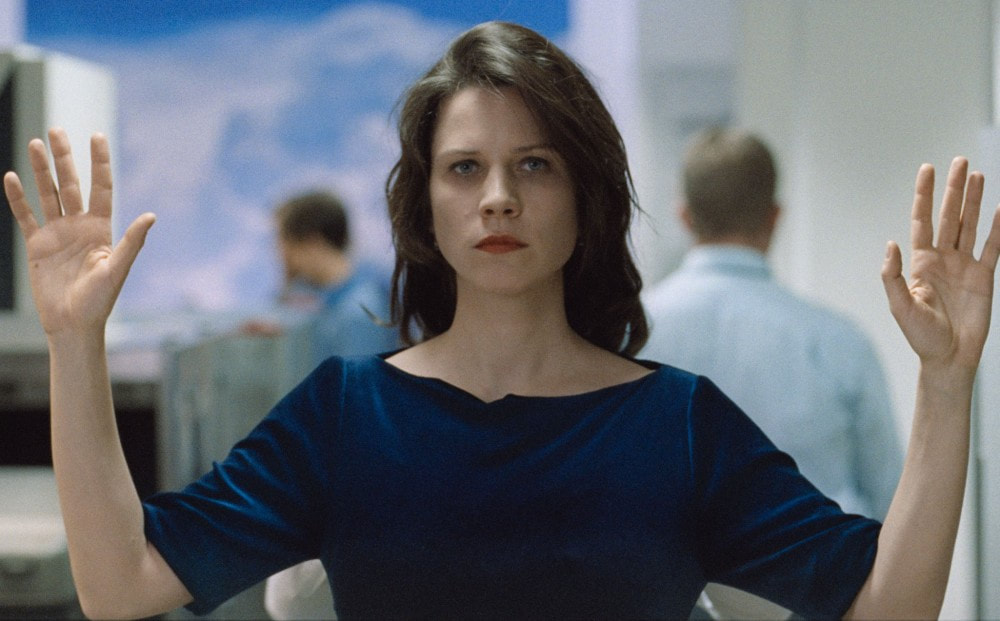
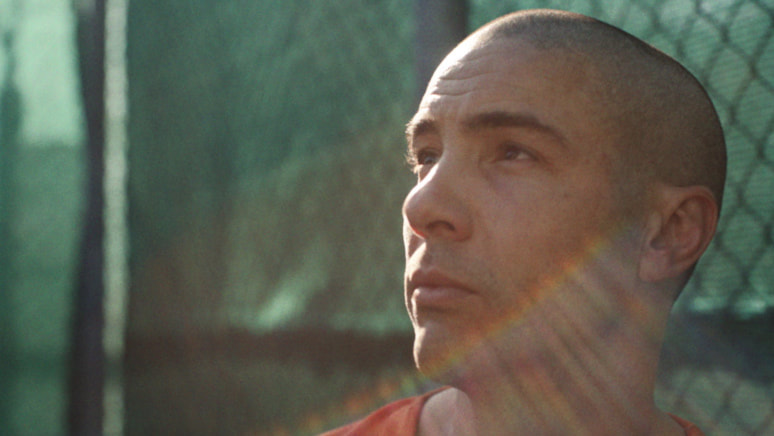

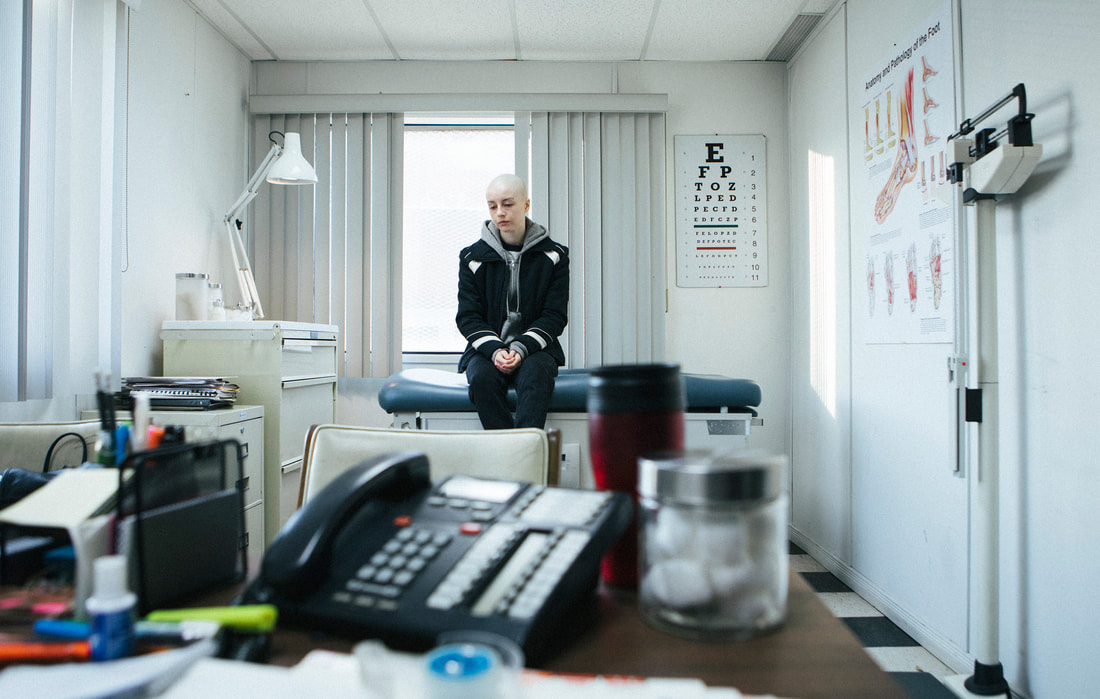
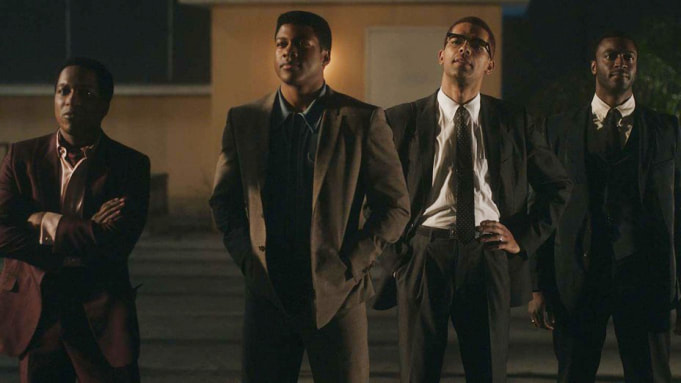
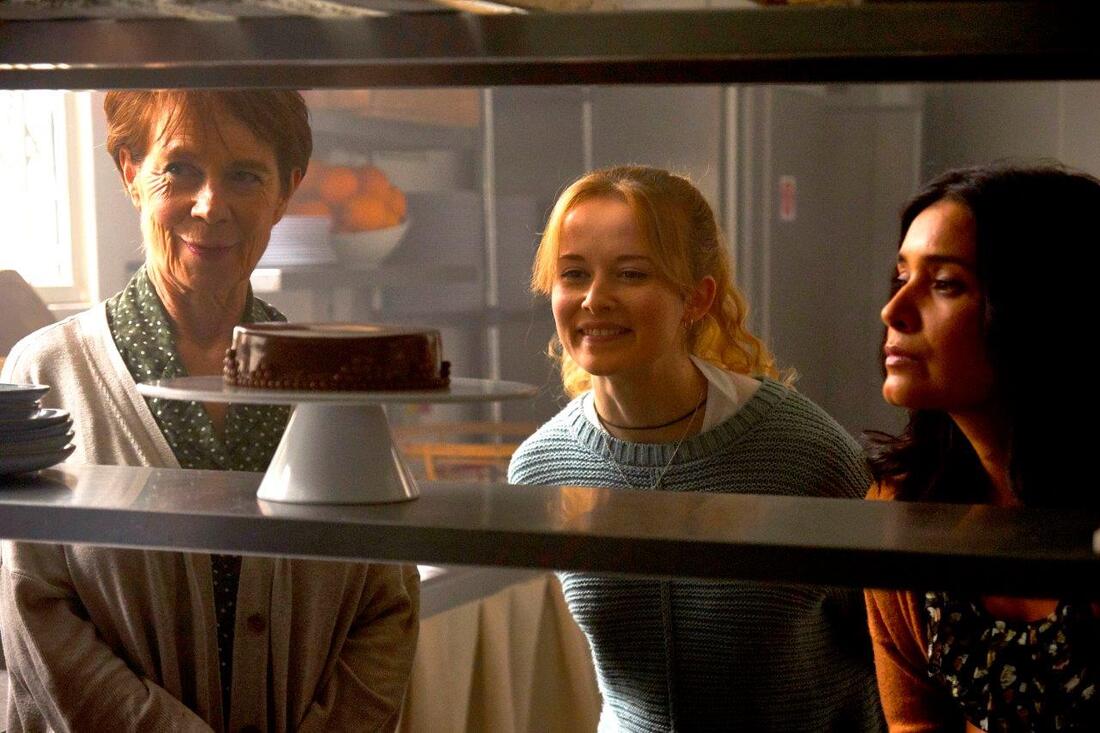
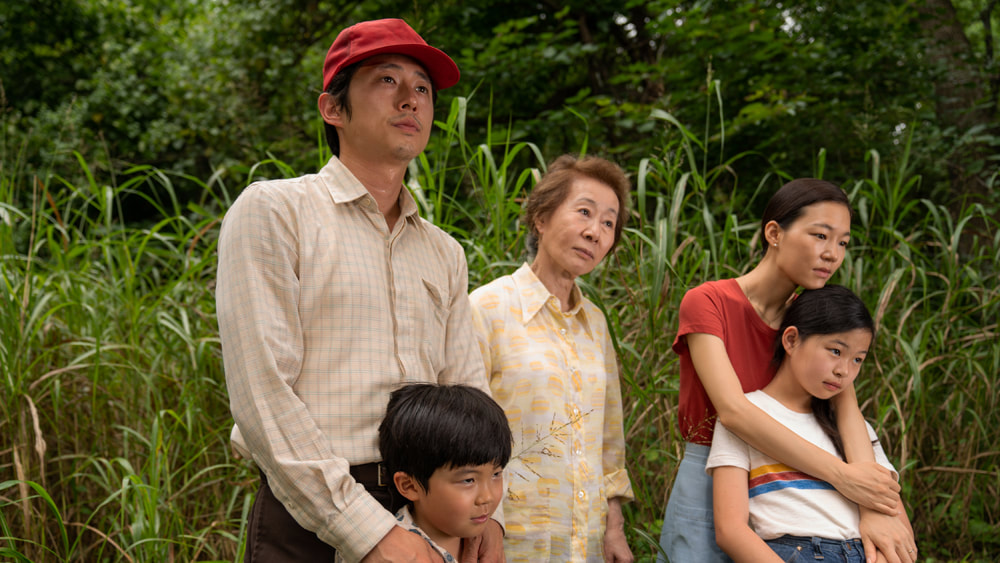
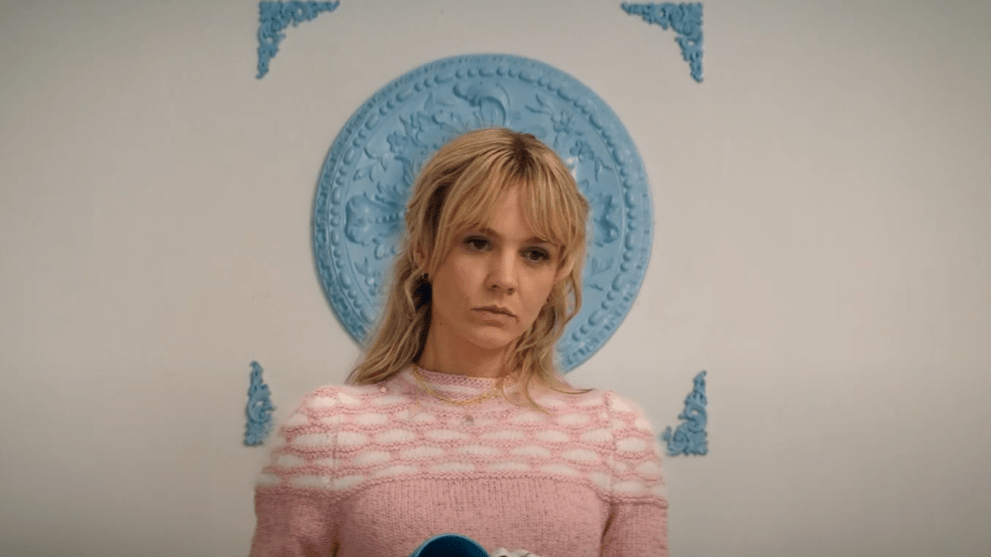


 RSS Feed
RSS Feed